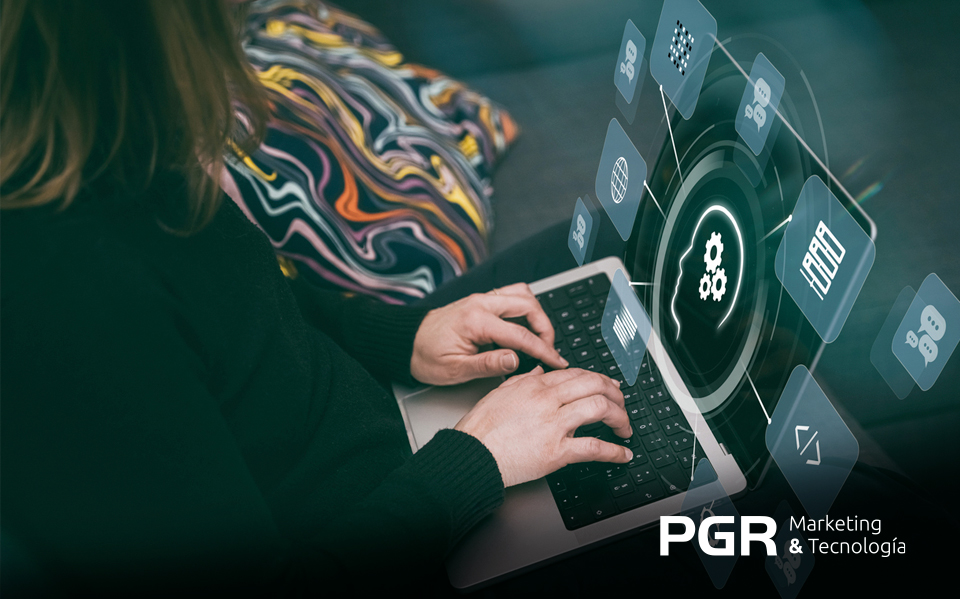Predictive analytics in marketing is one of the most relevant trends in today's marketing landscape, as it enables anticipating future consumer behaviour based on data. Although marketing has traditionally lagged behind other fields in using data to inform decisions, it now benefits from vast amounts of information thanks to the digital environment.
Even so, many professionals still struggle to interpret and apply this information. However, the emergence of artificial intelligence has transformed this landscape, making predictive analysis much more accurate, agile, and accessible.
With AI, it is possible to identify complex patterns, automate processes, and generate real-time predictions, greatly enhancing the strategic value of data. In fact, AI has come to solve many of the challenges of predictive marketing analytics by simplifying data interpretation and bringing advanced analysis closer to non-specialist profiles.
What does predictive analytics with AI offer digital marketing?
According to Hubspot, predictive analytics is a statistical science that examines current and historical data to uncover patterns that help predict future outcomes.
One of its main challenges, however, is the shortage of qualified data scientists with the training to know what to look for, especially when it comes to forecasting consumer behaviour.
Fortunately, predictive analytics now allows consumer trends to be uncovered through AI. Machine learning algorithms generate models that help identify useful market trends, enabling more informed decisions based on probabilities.
This is especially valuable in digital marketing, as it allows for more precise audience segmentation, message personalisation based on anticipated behaviour, and real-time campaign optimisation. By predicting which users are most likely to make a purchase, abandon a basket, or interact with a specific piece of content, brands can better anticipate their needs and deliver more relevant experiences.
Thus, combining predictive analytics with artificial intelligence not only improves marketing performance but also contributes to more efficient resource allocation and more strategic decision-making.
Key Benefits of Using AI for Predictive Marketing Analytics
1.- Uncover Hidden Patterns in Minutes
AI enables rapid analysis of large datasets, identifying patterns that would be difficult to spot manually. For instance, it can reveal the cause of increased support tickets related to a specific feature, allowing engineering teams to prioritise solutions, reduce issues, and improve the user experience.
2.- Personalise the Customer Journey
Personalisation has become a key customer expectation, and AI makes it scalable, tailoring recommendations and messages for each segment. According to DemandSage, companies that personalise their customer experiences can generate up to 40% more revenue.
3.- Predictive Customer Service
Predictive customer service, powered by AI, allows businesses to anticipate issues before they occur. By analysing customer behaviour, patterns emerge that help forecast problems and offer proactive assistance. For example, if a loyal customer abandons their cart, a support message can be triggered. This not only reduces abandonment but also enhances satisfaction.
4.- Improved ROI
Using predictive analytics and AI in marketing enables better decisions, optimised resource use, and targeting of the most profitable segments. Predicting behaviours such as conversion or churn likelihood allows companies to adapt campaigns in real time, cut unnecessary costs, and maximise outcomes. This results in a higher return on investment (ROI), as every action is data-backed and aimed at real business impact.
Want to leverage AI-powered predictive analytics in your marketing? At PGR Marketing & Technologia, we're here to help you make it happen.





